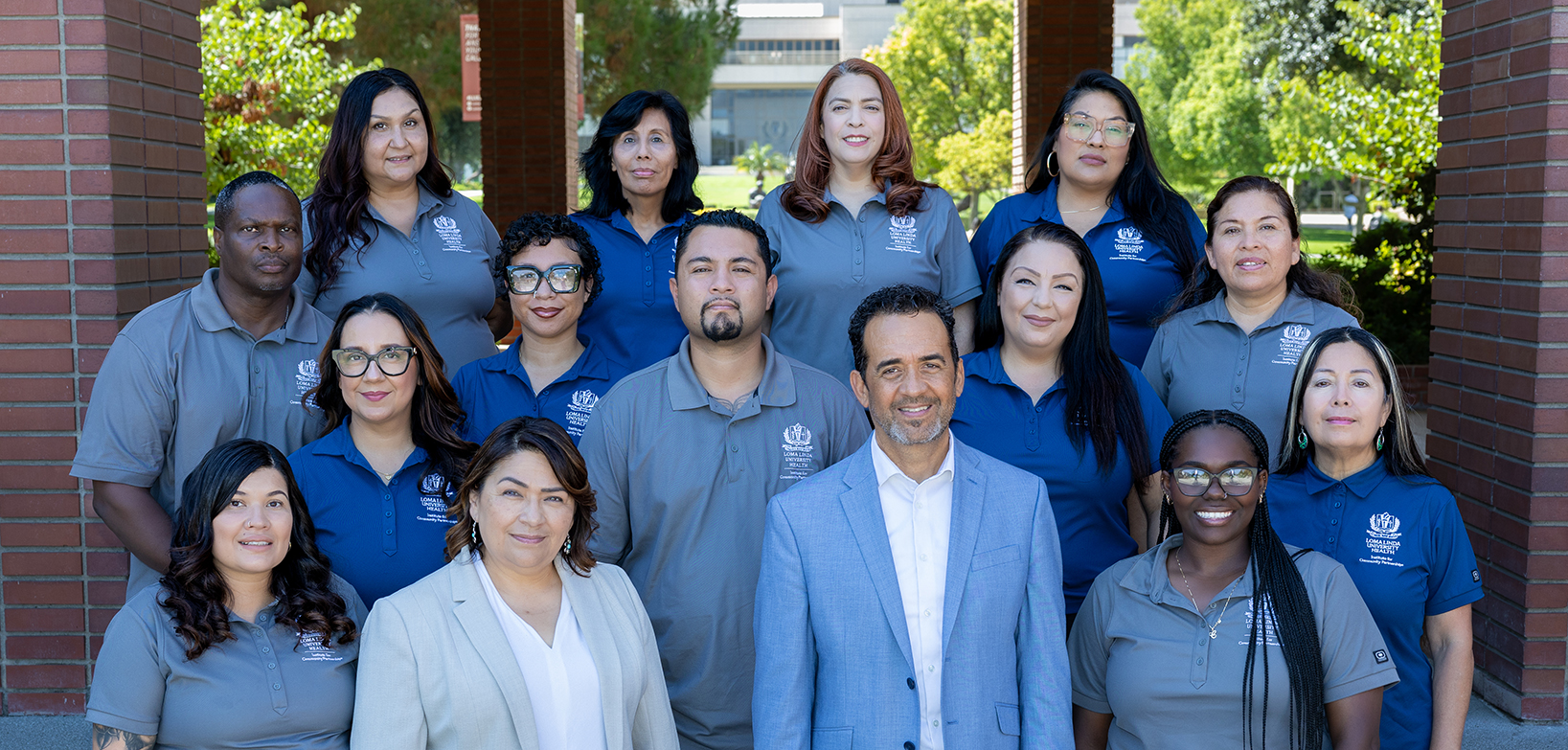We’re Stronger Together
With your help, we can advance education and improve student success in our community.

The Institute works strategically with our regional partners to better address community needs. ICP implements the LLUH-operated community benefit programs and provides the research component necessary to better target health system interventions for under-resourced community populations. ICP oversees the Office of Community Health Development to ensure strategic investments with partner organizations and coordinate the reporting of community benefit outcomes on behalf of LLUH. This model prioritizes LLUH’s focus on the social determinants of health and improved access to care for vulnerable populations.
To ensure that Loma Linda University Health is relevant and responsive to the community.
We envision a thriving Inland Empire community where every person has a safe and healthy place to live, grow, learn, and play. We do this through transformational community partnerships addressing the root causes of inequities and by inspiring future generations of health care leaders to work alongside the community and develop a lifelong love of service.
Collaboration, Respect, Equity, Compassion, and Excellence
Our focus is on the Inland Empire, or regions east of the Los Angeles metro area. This focus area extends to the desert areas of Riverside County and the high desert areas of San Bernardino County. Community can include individuals, organizations, government agencies, foundations, other colleges and universities, school districts, and much more!
Throughout its 100 year history, the academic and clinical communities of Loma Linda University Health have been concerned about their local community. This concern resulted in various initiatives to improve the health and well being of many families and individuals. These initiatives came from both the Medical Center and the University, from clinical staff and hospital departments as well as from faculty, students, and staff of the University. These programs and events kept with the organization's motto “To Make Man Whole” and exemplified a commitment to continuing the teaching and healing ministry of Jesus Christ.
Thus, the Institute for Community Partnerships (ICP) was created, under President Richard Hart’s vision, to make the wider organization's community engagement meaningful, coordinated, and strategic. The Institute for Community Partnerships:
While both ICP and Community-Academic Partners in Service (CAPS) share the goal of connecting with and befitting community, their roles differ. CAPS supports community service opportunities for students and runs several community programs both on and off campus. ICP supports community-based research and service-learning at Loma Linda University Health and strives to connect the organization with the local community through community engagement.
Community engagement is a long-term collaborative partnership between institutions of higher education and their larger communities for the mutually beneficial exchange of knowledge and resources (Carnegie Foundation for the Advancement of Teaching, 2014). Community service can be a one-time experience or on-going projects that do not necessarily have an academic or research foundation.
To learn more about what CAPS is doing and how to volunteer, visit their website.
With your help, we can advance education and improve student success in our community.